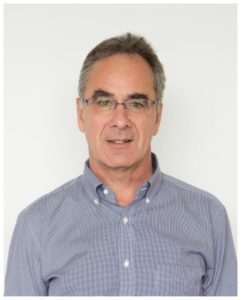Conference Speakers
Mr Daniel Lagger
Executive Director, Technical and Production, Nestlé Oceania
 Daniel Lagger has been in his role as Executive Director, Technical & Production (formerly Operations) since 1 March, 2016. In the preceding three and a half years, he was Technical Manager at Nestlé Japan. Daniel Lagger has been in his role as Executive Director, Technical & Production (formerly Operations) since 1 March, 2016. In the preceding three and a half years, he was Technical Manager at Nestlé Japan.
Daniel began his Nestlé career in 1984 as a Project Engineer in Switzerland. Throughout his 32 year career, Daniel has held different positions in the group in the Philippines, Thailand and Switzerland. He holds a Master degree in Mechanical Engineering from the EPFL Research Institution in Lausanne, Switzerland.
Daniel believes that the most important part of any role is working as one team to deliver results. Outside of work, Daniel likes sailing, diving and skiing, and discovering new countries.

Abstract
This year, Nestlé celebrates its 150th anniversary. Behind such a long history, questions of sustainability and protecting the future have always been key. With increasing water scarcity, constrained natural resources and declining biodiversity, we need to protect the future by making the right choices. We focus on continuous improvement in our environmental performance everywhere we operate, to provide products that are not only tastier and healthier but that are better for the environment along their entire value chain.
Our goal is to send zero waste to landfill from our factories globally by 2020. Over the last ten years, our focus on reducing waste for disposal has seen waste reduce by 75%, with one in five factories now generating no waste. However, we also consider waste more holistically, looking at all steps from agriculture and ingredient production, to the factory, in the supply chain and through to the consumer’s home. This approach requires detailed target setting as well as an in-depth understanding of behaviours and systems in different countries, both those that lead to waste, and systems that manage waste.
In addition, Nestlé is focusing strongly on reducing food loss and waste, both upstream in agriculture and through to the retailer and consumer. This is a crucial part of the journey to feed a growing global population and contribute to meeting the target of the Sustainable Development Goals to halve per capita global food waste by 2030.
With 436 factories in 85 countries making products sold in 189 countries, the company aims to improve resource efficiency, quality and productivity in our operations to do more with fewer resources and less waste. The story of Nestlé’s approach to waste and recovery is one of both high-level commitment, and deeply detailed activity, supported by external collaboration. This reflects the breadth and complexity of its operations.
Broader industry trends with respect to waste will be presented, and why this fits in with broader CSR and sustainability issues for companies in general as well as the specific Nestlé examples.
|



 Daniel Lagger has been in his role as Executive Director, Technical & Production (formerly Operations) since 1 March, 2016. In the preceding three and a half years, he was Technical Manager at Nestlé Japan.
Daniel Lagger has been in his role as Executive Director, Technical & Production (formerly Operations) since 1 March, 2016. In the preceding three and a half years, he was Technical Manager at Nestlé Japan.